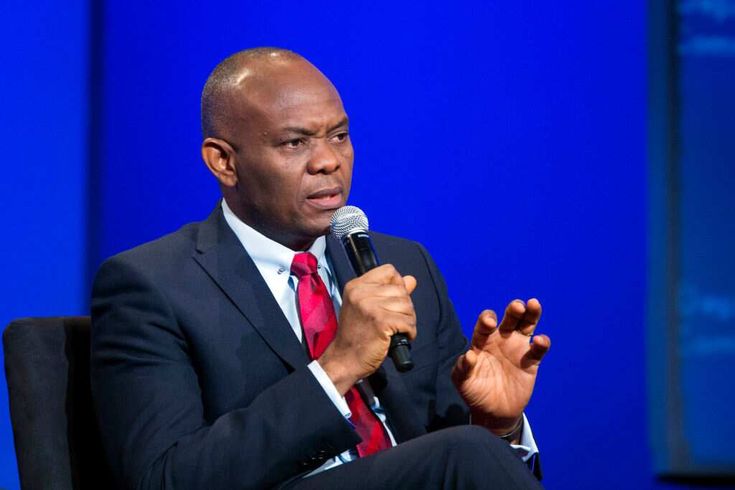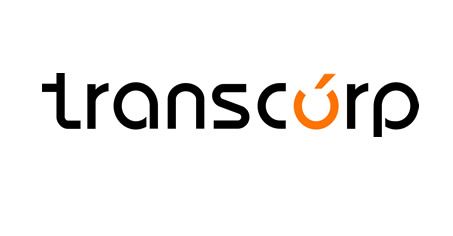In the dynamic and often unpredictable world of African business, few episodes have captivated investors, analysts, and corporate watchers as much as the dramatic events that unfolded between April and May 2023 in Nigeria’s capital markets. At the center of the storm were two of Nigeria’s most powerful businessmen: Femi Otedola, the billionaire investor and founder of Geregu Power, and Tony Elumelu, the respected financier and chairman of Transnational Corporation of Nigeria plc (Transcorp).
This story part power play, part investment masterclass highlights how strategic stake-building, swift market responses, and billionaire rivalry can reshape a company’s future in a matter of days. But beyond the headlines, the Transcorp saga offers a valuable case study in shareholder activism, corporate governance, Africapitalism, and investor psychology in emerging markets. This essay will dissect the events surrounding the deal, the implications for corporate Nigeria, and the broader lessons it presents for long-term investors.
The Corporate Battleground: What is Transcorp?
Transcorp plc is one of Nigeria’s most recognizable conglomerates. It operates across multiple sectors including hospitality, power generation, agribusiness, and oil and gas. Its assets include the prestigious Transcorp Hilton Hotel in Abuja, Transcorp Power Limited, and other ventures in energy and real estate.
Established with a mission to be Africa’s leading conglomerate, Transcorp boasts hundreds of thousands of retail shareholders and is led by Tony Elumelu, a prominent figure in African finance and founder of Heirs Holdings. Elumelu’s Africapitalist philosophy which emphasizes private sector-led growth for social and economic development has heavily shaped Transcorp’s strategic direction since he took over in 2011.
But in April 2023, Transcorp became the center of a power struggle that took even the most experienced market watchers by surprise.
The Billionaire’s Entry: Femi Otedola Takes Position
Femi Otedola is no stranger to bold corporate moves. With past investments in banking, shipping, oil trading, and power, he is widely respected and sometimes feared for his acumen and risk tolerance.

In early April 2023, news quietly broke that Otedola had acquired a 5.52% stake in Transcorp, becoming the second-largest shareholder. Within days, he increased this to 6.3%, giving him control of approximately 2.6 billion shares.
This triggered a rally in Transcorp’s stock, with share prices more than doubling from ₦1.20 to over ₦3.12 within two weeks. Trading volumes soared. Retail investors cheered. But behind the scenes, Elumelu and his team were likely weighing their next move very carefully.
Otedola was not just buying into a company he was signaling his interest in influence, and perhaps even control.
The Strategic Motive Behind the Stake
Otedola later revealed that his intention was not hostile. In an interview with Channels Television, he stated that he saw untapped potential in Transcorp, especially in its power division, and believed the company was undervalued by the market.
He claimed that his proposal to the board included a plan to increase the market capitalization of Transcorp from ₦40 billion to ₦2 trillion and to inject over ₦250 billion into its operations. The ambition was enormous but so was the risk of clashing visions.
As a businessman deeply invested in the Nigerian energy sector through Geregu Power, Otedola saw an opportunity to consolidate and modernize power generation under a unified vision. However, he quickly encountered resistance.
Elumelu Responds: The Battle for Control
Tony Elumelu, known for his calm demeanor and strategic foresight, responded swiftly. Through his investment vehicle, HH Capital Limited, he began aggressively buying more Transcorp shares. Within days, he raised his stake from just over 2% to nearly 26%, making him the dominant shareholder once again.
In total, HH Capital acquired nearly 9.7 billion shares, worth over ₦23 billion, at prices ranging between ₦2.69 and ₦3.12 per share. This move ensured that Elumelu retained control over the company, effectively neutralizing any possibility of Otedola gaining boardroom influence.
This bold response was not just a financial maneuver it was a statement. Elumelu was making it clear that while Transcorp welcomes investment, leadership and strategic direction would remain firmly in-house.
The Exit: Otedola Sells at a Premium
On April 28, 2023, it was officially confirmed that Femi Otedola had exited his Transcorp position. The sale was made to HH Capital, and though the exact terms were not publicly disclosed, insiders suggest that the transaction fetched a premium of up to 400% above Otedola’s entry price.

From a financial standpoint, the move was a masterstroke. Otedola had reportedly purchased his stake at prices between ₦1.20 and ₦1.50, and sold at between ₦3.00 and ₦3.12, earning a handsome profit of over ₦20 billion in under a month.
However, the deal stirred controversy. Some critics accused Otedola of greenmail a practice where an investor acquires a substantial stake in a company to pressure existing management into buying them out at a higher price. While technically legal, greenmail is controversial and often frowned upon in corporate governance circles.
The Aftermath: Public Reactions and Strategic Shifts
Following the transaction, both parties took to the media to clarify their positions. Otedola emphasized that he had no animosity toward Elumelu, noting that “two captains cannot man the same ship.” He added that he respected Elumelu’s leadership and chose to step aside for the sake of corporate stability.
Elumelu, for his part, thanked Otedola for showing confidence in Transcorp’s potential. He reiterated the company’s long-term vision and hinted at future plans to list Transcorp Power separately, a move that could unlock even greater shareholder value in the coming years.
This episode, despite its dramatic nature, ultimately ended on a cordial note—a testament to the professionalism of both parties and their understanding of corporate diplomacy.
Analysis: What Does This Mean for Nigerian Capital Markets?
1. The Rise of Shareholder Activism
Otedola’s actions signal a new era in Nigerian business one where major investors are increasingly assertive, strategic, and willing to challenge the status quo. Shareholder activism, once rare in Nigeria, is becoming more mainstream as financial literacy and market transparency improve.
2. Corporate Governance Tested
While the transaction was legal, it raised important questions about the balance of power in public companies. Should a single individual or entity be able to gain control of a large conglomerate so quickly? How should boards respond to aggressive share accumulation? These are issues regulators may need to address going forward.
3. Market Liquidity and Valuation
The Transcorp saga also showed how liquidity and perception can rapidly alter a company’s valuation. The stock’s price more than doubled in less than 10 trading sessions not due to fundamentals, but due to speculation and strategic positioning.
This has both positive and negative implications. On one hand, it shows the potential for Nigerian equities to create wealth quickly. On the other, it underscores the need for caution among retail investors who may be caught in speculative swings.
Africapitalism vs Opportunism: Two Visions Clash
At its core, the Otedola Transcorp Elumelu episode is a clash between two styles of wealth building.
- Tony Elumelu’s approach is long-term, structured, and mission-driven. Through Africapitalism, he seeks to build sustainable businesses that generate both profit and social value.
- Femi Otedola, meanwhile, is the opportunistic tactician scanning the market for undervalued assets, making swift moves, and exiting at maximum profit.
Neither approach is inherently better. In fact, they complement each other and reflect the maturity of Nigeria’s investment ecosystem. The episode teaches that there is room for both visionary leadership and tactical investing, as long as transparency and governance are maintained.
Lessons for Emerging Markets
- Control Premiums Are Real: The premium paid by Elumelu to regain control reflects the strategic value of ownership. Investors should recognize that control can carry both financial and symbolic power.
- Regulatory Framework Needs Updating: Nigeria’s Securities and Exchange Commission (SEC) and Nigerian Exchange Group (NGX) may need to revisit rules around share disclosures, hostile takeovers, and greenmail to maintain market integrity.
- Retail Investors Must Be Cautious: While speculative rallies can be exciting, long-term wealth is rarely built on volatility. Investors should analyze the fundamentals, not just follow the headlines.
Conclusion: A Defining Moment in Nigerian Business
The Otedola Transcorp Elumelu saga will go down as one of the most defining corporate moments in Nigeria’s capital market history. It revealed the power of strategic investment, the strength of established leadership, and the complexity of modern corporate governance.
It also affirmed that African billionaires are increasingly willing to shape the continent’s economic future, not just through philanthropy or speeches, but through high-stakes financial maneuvers that alter the course of companies and industries.
For observers, this was more than a business deal it was a lesson in ambition, risk, pride, and diplomacy. And in the end, it reminded us that power and profit often walk hand in hand but prestige is earned through patience and vision.
























































